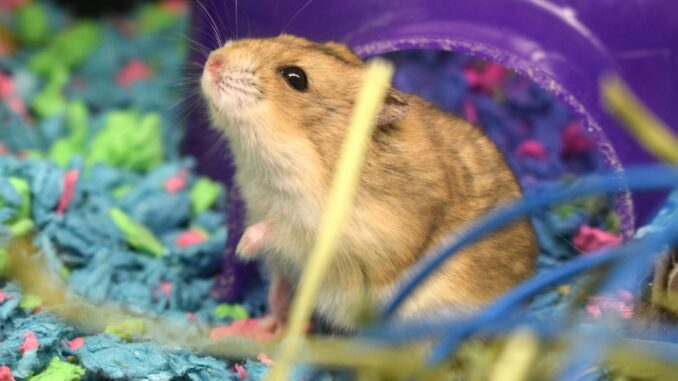
Gerbils are small, adorable, and low-maintenance pets that make great companions. They make a great alternative to mice or hamsters as they are active during the day. Whether you’re a first-time gerbil owner or have had gerbils as pets before, it’s essential to understand their needs to ensure they are happy and healthy. In this comprehensive guide, we will cover everything you need to know about gerbil care.
Choosing the Right Gerbil
Before bringing home a gerbil, it’s important to select the right one. Opt for gerbils that are young, active, and curious. Ensure they have bright, clear eyes, a shiny coat, and no signs of injury or illness. Gender is also a consideration unless you’re ready to handle a potential population explosion. Gerbils generally thrive when housed in same-sex pairs or small groups.
Gerbil care: Housing
Gerbils are active creatures that require plenty of space to explore and play. A suitable habitat is a glass or plastic tank with a secure mesh lid to prevent escapes. Ensure the enclosure offers enough room for running, digging, and burrowing. Gerbils love to tunnel, so providing them with deep bedding will satisfy their natural instincts.
Bedding and Substrate
Choosing the right bedding is crucial for a gerbil’s well-being. Opt for safe, non-toxic bedding materials such as aspen shavings, paper-based bedding, or shredded paper. Avoid cedar or pine shavings, as they can cause respiratory problems. Ensure the substrate is deep enough for your gerbils to burrow and create tunnels.
Diet and Nutrition
Gerbils are omnivorous, which means they eat a mix of plant-based and protein-rich foods. A high-quality gerbil mix from a pet shop forms the foundation of their diet. This mix usually consists of seeds, grains, and pellets. Alongside the commercial mix, introduce fresh vegetables, fruits, and occasional treats. Avoid feeding them foods that are toxic to gerbils, such as chocolate, onions, and caffeine.
Gerbil care: Hydration
Gerbils get most of their hydration from their diet, but it’s essential to provide fresh water as well. Use a sipper bottle with a metal spout to prevent spillage. Ensure the water is changed daily to maintain freshness and cleanliness.
Exercise and Enrichment
Gerbils are energetic critters that require regular exercise and mental stimulation. Provide an exercise wheel that is solid and without rungs to prevent potential injuries. Offer plenty of chew toys, tunnels, and hideouts to keep them entertained. Additionally, rotate toys and rearrange their habitat occasionally to keep things interesting.
Gerbil care: Socialisation and Handling
Gerbils are social animals and thrive when they have companionship. Keep gerbils in same-sex pairs or trios, ensuring they are introduced and living together from a young age. Handling gerbils regularly from a young age helps to build trust and strengthen the bond between you and your pets. Handle them gently and avoid holding them by their tails.
Health and Veterinary Care
Regularly monitor your gerbils for any signs of illness or injury. Common health issues that gerbils may face include respiratory infections, dental problems, and skin conditions. Consult with a veterinarian experienced in treating small animals if you notice any abnormalities. In addition, ensure their habitat is clean and well-maintained to prevent the spread of diseases.
Conclusion
Providing proper care and attention to your gerbils is the key to ensuring their happiness and well-being. By following this comprehensive guide to gerbil care, you will create a nurturing environment that allows your gerbils to thrive. Remember, a healthy gerbil is a happy gerbil!
Get more gerbil advice from the RSPCA.
Leave a Reply